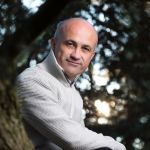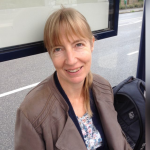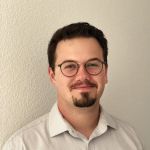Team
Group Leader
Prof. Alexandre Roulin
I received my PhD from the University of Bern in 1999. Following a post-doctoral fellowship at the University of Cambridge (England) and in Montpellier (France), I received a “Professeur Boursier” grant at the University of Lausanne, in Switzerland, from the Swiss National Science Foundation and was hired as Associate Professor in 2008 and then as Full Professor in 2016 in the same university.
I’m interested in all aspects of evolutionary biology. By working with the Barn Owl, I have studied its reproductive biology, social behavior, ecophysiology, its population dynamics, population genetics, genomics, and its conservation biology. This wide field of study enabled me to write a monograph on this particular owl which was published by Cambridge University Press in 2020 (French and German translations forthcoming in 2021). My preferred research areas are evolution, the maintenance and adaptive functioning of color polymorphism based on melanin pigments, as well as the social behaviors amongst siblings.
Post-Docs
Ana Drago Rosa
Post-doctorante pour le groupe Roulin
Dr. Anne-Lyse Ducrest
After working as a medical lab technician, I first studied biochemistry and molecular biology at the University of Bern and then I completed my doctoral thesis in molecular biology at the ISREC (Institut Suisse de Recherche Expérimentale sur le Cancer). Interested in the evolutionary aspects of biology, I joined this research group for which I study the genes involved in regulating the melanin-based coloring and their possible associations with other Barn Owl characteristics. At the same time, I manage the molecular biology lab at the Dept of Ecology and Evolution.
Graduate Students
Léa Péric
Doctorante pour le groupe Roulin
Maël Theubet
Since my Bachelor's degree in psychology, education and language science at the University of Neuchâtel, I have been interested in animal representations. I then completed a Master's degree in cognitive sciences at the same university where I was interested in the evolutionary and developmental origins of the understanding of death. I joined the University of Lausanne in 2021 to pursue my research on cognition related to the biological world. During my PhD, jointly supervised by Professor Christine Mohr and Professor Alexandre Roulin, I would like to understand how our beliefs about owls and bats can impact conservation projects.
Alexandros Topaloudis
I moved to Lausanne to study in the Master program of Behaviour, Evolution and Conservation. I completed my master thesis in "Population genomics of insular populations of Barn owls" with Prof. Goudet and continued working on the project for a year. Now, I am doing my PhD with Profs Goudet and Roulin on "Genomics and quantitative genetics of the Swiss barn owl population" hoping to learn more about how DNA affects the phenotype of these nocturnal hunters.
Staff
Nathan Joye
It is with great enthusiasm that I joined the Roulin group as field manager for barn owl monitoring. Fascinated by nature since childhood, I have focused my professional career on biodiversity conservation, specialising in aquatic environments and gaining varied experience in species monitoring.
I am particularly passionate about barn owls: their mysterious presence and ecological role make them incredible ambassadors for our nocturnal landscapes. Being able to contribute to their study and protection is a unique opportunity for me.
Alexandre Roland
J'ai découvert l'univers de la chouette effraie lors de mes études de master en 2022 au sein du groupe du Prof. Roulin. Mes recherches portaient sur la compréhension de la territorialité et des interactions individuelles au sein de cette espèce fascinante. En 2023, j'ai eu l'opportunité de travailler en tant qu'assistant de terrain et de participer à la collecte de données.
Après avoir travaillé à l'IUCN et sur une île aux Seychelles pour la conservation en 2024, j'ai eu le plaisir de reprendre dès avril 2025 le poste de responsable du terrain pour ce projet de recherche.
Céline Simon
During my university education (double Master’s in Parasite Ecology and in Health Biology, UM2, France), I developed a great interest for lab research. In 2009, I joined the group as a laboratory worker and since then I’ve great enjoyed working amidst such a passionate team. My work is essentially to exploit various molecular biology techniques to answer any questions the team raises about evolution.
Science communication
Master students
Clara Deillon, Gaëlle Florent, Anna Grangier-Bijou, Alexandre Roland
Collaborators of the Swiss Ornithological Institute
Roxane Allemann
After obtaining a Bachelor's degree in Biology at the University of Lausanne in 2019, I turned to a Master's degree in Behavior, Evolution and Conservation, during which I was able to study the impact of global warming on the reproduction of Barn Owls. With my master's degree completed in February 2021, I have now joined the team of the Swiss Ornithological Institute as a field manager, where I actively participate in the data collection for the Barn Owl project.
Dr. Bettina Almasi
My fascination for nature and its processes motivated me to study biology at the University of Freiburg and Zurich. After my master in zoology, I studied the effects of stress on the barn owl and received a PhD degree from the University of Zurich for this work in 2008. I then worked first as a post-doc and since 2015 as a research associate at the Swiss Ornithological Institute.
The barn owl benefits from the open agricultural landscape and from the nesting opportunities in farm buildings. However, the intensification of agriculture in recent years has also affected the barn owl. In my research on the barn owl, I try to understand how environmental conditions, agricultural management, and anthropogenic disturbances affect behavior, breeding success and survival. To do this, I look at the entire annual cycle of the barn owl to find out what the detailed habitat requirements are, how the barn owl gets through the winter, and what effects severe winters and food shortages have on survival and future breeding success.
Roman Bühler
During my Bachelor and Master’s studies in Ecology and Conservation at the University of Bern, I discovered my passion for birds. Beside my general interest for birds, I am currently trying to shed a light on the behavior and ecology of barn owls during the winter, a difficult period for this raptor not very adapted to the cold. I am doing my PhD in collaboration with the Swiss Ornithological Institute.
Lara de Gianni
After completing my Bachelor's degree in Natural Systems at the University of Neuchâtel, I decided to continue my studies with a Master's degree in Biology. Since February 2020, I have been collaborating with the team of the Swiss Ornithological Institute and the University of Lausanne to collect data on the "Barn Owl" project. Since January 2021, I am a field assistant and I take care of the field organization and the "Smart nestboxes" project, always helping with the monitoring of small mammals and the mapping of the barn owl winter habitat.
Nicolas Sironi
After obtaining a Master in Behavior, Evolution and Conservation at the University of Lausanne in 2018, I was hired as a scientific and field assistant by the Swiss Ornithological Institute for the joint project with the Roulin group on the Barn Owl. During two years, I was responsible for organizing the fieldwork of the Ornithological Station team and certain parts of the project, such as the habitat mapping, the experiments with perches and the monitoring of micro-mammal populations. Since 2019, I am responsible for the monitoring and developing the Octanis project.
Franziska Wolf
Master student University of Zurich
Damien Zurkinden
After obtaining my Bachelor in Nature Management at hepia, I completed it with a Masters in Natural Resource Management. During my studies I specialized in ecological monitoring and this is how I was able to integrate the "Barn Owl" project at the Swiss Ornithological Institute as responsible for the micromammals monitoring. I am also a field coordinator for the mapping of Barn Owl winter habitat and capture season.
Previous group members
Post-Docs
Pauline Ducouret (2019—2020) ; Paul Béziers (2018—2020) ; Andrea Romano (2017—2020) ; Julien Gasparini (2005—2008) « Maître de conférence » in Paris (2008—2017) and Professor (2017—) ; Amélie Dreiss (2008—2014 ; 2015—2017); Laura Gangoso (2008—2010); Pauline Charruau (2015); Madeleine Scriba (2015); Carolina Massa (2015); Karin Löw (2013—2020); Luis San-Jose Garcia (2014—2017).
Graduate students
Ana Paula Machado (2016—2021); Robin Séchaud (2016—2021); Vera Uva (2015—2020); Pauline Ducouret (2014—2019); Arnaud Gaigher (2013-2018) (Co-supervision with Dr. Luca Fumagalli) ; Valérie Ducret (2013—2017); Benjamin Homberger (2011—2014) University of Zurich (Co-supervision with Dr. Lukas Jenni) ; Madeleine Scriba (2012—2013) ; Paul Béziers (2012—2017) ; Sylvain Antoniazza (2008—2013) (Co-supervision with Prof. Jérôme Goudet) ; Charlène Ruppli (2008—2012) ; Guillaume Emaresi (2007—2012) ; Valentijn van den Brink (2008—2012) ; Romain Piault (2004—2008) ; Reto Burri (2005—2010) (Co-supervision with Dr. Luca Fumagalli) ; Bettina Almasi (2004—2008) University of Zurich (Co-supervision with Dr. Lukas Jenni) ; Pierre Bize (2000—2003) University of Bern (Co-supervision with Prof. Heinz Richner).
Master Students from Switzerland
Pierre Bize (1998), Paul Monnerat (1999), Mathias Ritschard (2004), Isabelle Py (2004), Alan Juilland (2004), Aurélie Klopfenstein (2006), Caroline Jeanneret (2006), Arnaud Baylon (2006), Kim Stier (2007), Antoine Stocker (2007), Candice Yvon (2007), Sylvain Antoniazza (2008), Céline Fioravanti (2008), Sabrina Joye (2010), Vassilissa Dolivo (2010), Caroline Sonnay (2010), Caroline Frey (2010), Céline Waldvogel (2010), Alia Mafli (2010), Ester Luzio (2011), Esther Gonzales (2011), Frédéric Oberli (2011), Marco Calgagno (2011), Sarah Bates (2012), Raphaelle Flint (2012), Adrian Moriette (2012), Alexandre Chausson (2012), Stéphanie Rochat (2012), Philippe Chatelain (2012), Sébastien Stucki (2012), Estelle Ifrid (2013), Olivier Darbellay (2013), Baudouin des Monstiers (2014), Alice Delarbre (2014), Vanessa Formenti (2015), Karine Vincent (2015), Eva Meyrier (2015), Robin Séchaud (2015), Christophe Sahli (2016), Kim Schalcher (2016), Estelle Mayor (2017), Steve Zurkinden (2017), Céline Plancherel (2017), Jenny Panziera (2017), Raphaël Sartori (2017), Laurie Ançay (2018), Arianna Rusca (2018), Giulia Perroud (2018), Nathan Külling (2018), Sara Ravn (2019), Marie Froehly (2019), Anne-Caroline Heintz (2019), Nathan Gellé (2019), Roxane Allemann (2020), Morgane Calvani (2020), Lisa Hulaas (2020), Nathan Gellé (2020).
Master Students from France
Thomas Letuppe (M2 2008, Univ Rennes); Marine Battesti (M1 2009, Univ Rennes); Hélène Audusseau (M1 2009, Univ Dijon); Alexis Marcadet (M1 2009, Univ Pierre et Marie Curie); Anaïs Edme (M2 2010, Univ Poitiers); Arnaud Da Silva (M1 2010 and M2 2010, Univ Dijon); Olympe Arévalo (M1 2010, Univ Dijon); Marie Foulon (M1 2011, Univ Paris Sud); Mélissa Noll (M2 2011, Univ Dijon); Aurélie Laurent (M1 2011 Univ Dijon); Zoé Demaizière (M2 2012 Univ Dijon); Aurélie Vermunt (M2 2012 Univ Dijon); Héloïse Théro (M1 2012, Ecole Normale Supérieure Paris); Anaïs Edmé (M2 2012 Univ Poitiers); Pauline Ducouret (M2 2013 Sciences et Technologies du Vivant et de l’Environnement AgroParisTech, MNHN, ENS Paris); Lorine Dijoux (M2 2013 Univ Poitiers); Florian Chevalier (M2 2013, Univ Dijon); Nicolas Villain (M2 2013 Agroscope Agrocampus-Ouest Paris); Mélanie Dugas (M1 2014 Univ Dijon); Florence Gaime (M2 2014 Univ Saint-Etienne); Virginie Rossier (M2 2014 Paris 13); Lucile Hernandez (M2 2014 Univ Dijon); Emy Guilbaut (M2 2015 Univ Montpellier II); Tiphaine Quetel (M2 2015 Univ Strasbourg); Justin Dessonet (M2 2015 Univ Dijon); Charlène Gémard (M2 2015 Univ Angers); Clarisse Judes (M2 2015 Univ Paris-Sud); Anastasia Questiaux (M2 2015 Univ Dijon); Kathleen Salin (M2 2016 Univ Tours); Maryline Gaillard (M2 2016 Univ Dijon; Lisa Poncet (DUT Génie Biologie option Génie de l’Environnement 2016 Univ Jean Monnet Saint-Etienne); Aymeric Oliveira-Xavier (M2 2016 Univ François-Rabelais Tours; Auréline Forestier (M2 2017 Univ François-Rabelais Tours); Jessica Jamet (M2 2017 Univ Dijon); Manon Bincteux (M2 2018, Univ Toulouse), Nicolas Moulin (M2 2019, Univ Montpellier), Thomas Laurent (M2 2019, Univ Poitier), Maureen Konrad (M1 2019, Univ Lyon).
Staff
Laura Clément — Field Assistant (2012-2013), Baudoin Des Monstiers Merinville — Field Assistant (2014), Robin Séchaud — Field Assistant (2015), Charlène Gémard — Field Assistant (2016), Margherita Corti — PhD (2016-2017), Isabelle Henry — Data manager (2017-2019), Kim Schalcher — Field Assistant (2017), Steve Zurkinden — Field Assistant (2018), Nathan Külling — Field Assistant (2019), Anne-Caroline Heintz — Field Assistant (2020) , Loïc Brun — Lab Technician (2021), Céline Plancherel — Science communicator (2019-2021)














